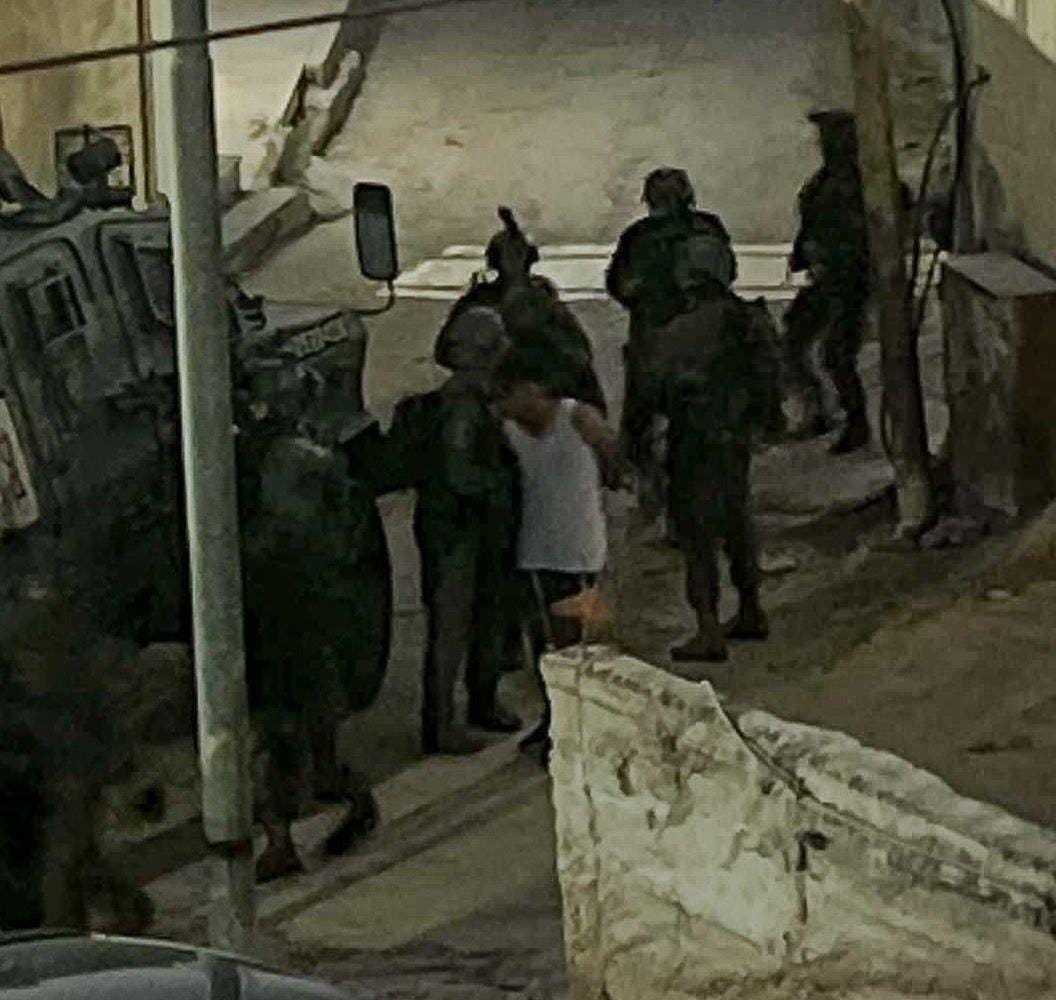Horror at Rakefet: Palestinians Kept Without Trial in Israel’s Cruel Underground Prison
Rights Groups Reveal Secret Israeli Underground Prison Holding Civilians from Gaza Without Sunlight, Contact, or Due Process
Palestine, PUREWILAYAH.COM - Israel” is detaining dozens of Palestinians from Gaza in a secret underground facility where they are denied sunlight, proper food, and any contact with the outside world, according to a report by The Guardian.
Human rights lawyers revealed that detainees include at least two civilians — a nurse abducted while still wearing his hospital uniform, and a young food vendor — both held for months without charge or trial.
The men are represented by the Public Committee Against Torture in Israel (PCATI), whose lawyers say their clients endured severe abuse consistent with previously documented torture in Israeli prisons.
The detainees were transferred in January to the Rakefet complex, a subterranean prison near Ramla originally opened in the 1980s for so-called “dangerous criminal offenders.” It was later closed for being unfit for human confinement. Far-right Police Minister Itamar Ben-Gvir ordered its reopening following October 7, 2023.
All sections of the facility — the cells, a small exercise space, and even the lawyers’ meeting room — are built underground. Detainees live entirely without natural light. Once designed for just 15 “high-risk prisoners,” the complex now holds around 100 Palestinians, according to data obtained by PCATI.
Ceasefire Fails to End Arbitrary Detention
Although “Israel” released 250 sentenced prisoners and 1,700 detainees held without charge under a mid-October ceasefire, PCATI reports that at least 1,000 others remain imprisoned under similar conditions.
“Though the war is officially over, Palestinians from Gaza are still imprisoned under legally contested and violent wartime conditions that violate international humanitarian law and amount to torture,” the organization said.
One of the released detainees was the young food vendor previously held in Rakefet; however, the detained nurse remains imprisoned.
PCATI lawyer Janan Abdu emphasized that those detained are civilians:
“In the cases of the clients we visited, we are speaking about civilians,” she said. “The man I spoke to was an 18-year-old who worked selling food. He was taken from a checkpoint on a road.”
‘Horrific by Intention’
Neither the Israeli Prison Service nor the Justice Ministry responded to The Guardian’s questions about the detainees’ identities or conditions inside Rakefet. Classified Israeli data reviewed by rights groups indicate that most Palestinians detained during the Gaza genocide were civilians.
Tal Steiner, Executive Director of PCATI, described the conditions across Israeli prisons as “horrific by intention.” She added that Rakefet inflicts an additional layer of cruelty through long-term isolation underground. Such confinement, she said, has “extreme implications” for mental and physical health — disrupting circadian rhythms, impairing breathing, and halting vitamin D production.
Buried from the World
Steiner stated that despite decades of monitoring detention centers, she had never heard of Rakefet before Ben-Gvir ordered its reopening. PCATI researchers examined historical records and the memoir of former Israeli prison chief Rafael Suissa, who once wrote that keeping people underground “24/7 is just too cruel, too inhumane for any person to endure.”
When PCATI lawyers Janan Abdu and Saja Misherqi Baransi were finally granted access this summer, they were escorted by masked guards into filthy underground chambers.
The meeting room was covered with insect remains and had a broken toilet. Surveillance cameras recorded every word, and guards warned the lawyers not to discuss the detainees’ families or the war on Gaza.
“I asked myself, if the conditions in the lawyers’ room are so humiliating… then what is the situation for the prisoners?” Abdu said. “The answer came soon, when we met them.”
‘You Are the First Person I Have Seen Since My Arrest’
The detainees were brought in shackled, bent over, and forced to keep their heads down. One asked, “Where am I and why am I here?” — revealing he had never been told the prison’s name. Judges had ruled in brief video sessions, without legal representation or evidence, that the men would remain detained “until the war ends.”
The prisoners described windowless, airless cells, shared by three or four people, and regular abuse — including beatings, dog attacks, and starvation-level rations. Mattresses were removed at dawn and returned at night. Their accounts aligned with footage from Ben-Gvir’s televised visit, during which he declared, “This is terrorists’ natural place — under the ground.”
Lawyer Baransi said that the detained nurse last saw daylight in January 2024, after being transferred from other Israeli facilities, including the notorious Sde Teiman military center. The father of three has had no contact with his family.
“When I told him, ‘I talked to your mother and she authorized me to meet you,’ I was giving him this tiny thing — at least telling him that his mother is alive,” she said.
When the young trader asked whether his pregnant wife had given birth safely, guards immediately silenced him. As he was taken away, Abdu heard the sound of an elevator — realizing the cells were even deeper underground.
“You are the first person I have seen since my arrest,” the young man said before being taken away. His last words to her were: “Please come see me again.”
He was later released to Gaza on October 13.
The horror of Rakefet stands as another dark testament to systematic abuse and enforced disappearance under Israeli detention — buried from sunlight, justice, and the world’s sight. (PW)


